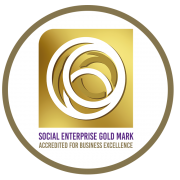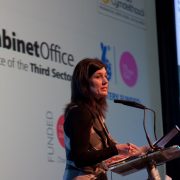Can ‘fairly traded’ really replace ‘Fairtrade’?
 As the authority responsible for implementing the robust standards and independent accreditation processes of the Social Enterprise Mark and Social Enterprise Gold Mark, we were very sad to hear of the decision by Sainsbury’s to apply their own “fairly-traded” scheme to Red Label tea in place of the widely trusted FAIRTRADE Mark.
As the authority responsible for implementing the robust standards and independent accreditation processes of the Social Enterprise Mark and Social Enterprise Gold Mark, we were very sad to hear of the decision by Sainsbury’s to apply their own “fairly-traded” scheme to Red Label tea in place of the widely trusted FAIRTRADE Mark.
Much as Sainsbury’s is loved and trusted by its customers, this move risks opening the door to less reputable businesses creating their own in-house schemes. We are very concerned that this will lead to a proliferation of unsubstantiated social and environmental claims that will confuse consumers and ultimately erode their trust in all such schemes, far beyond the sectors in which Fairtrade operates. The extent of these concerns is apparent in the response to the petition on Change.Org on this topic which quickly attracted over 5,000 signatures.
As a labelling company ourselves, we know that considerable investment, expertise and commitment is required to develop and process robust standards. We are concerned that by Sainsbury’s controlling the certification of its own products, it will ‘water down’ the regulations to suit its own agenda.
There is likely to be confusion amongst consumers, who have come to recognise the FAIRTRADE Mark as independent proof that a product has met international Fairtrade standards. This trust has been built up over 2 decades.
For our part, we verify the claims of genuine social enterprises, by providing a trusted independent label to assure stakeholders that they meet common standards. The assessment process helps them to benchmark performance against the norms and encourages them to work towards best practice. The key to credible accreditation/certification is an external assessment process, which should be conducted by an independent third party. Only with a completely impartial and transparent process is it meaningful.
We therefore fail to understand why Sainsbury’s would choose not to support such a process in respect of its own products that meet Fairtrade standards, rather than upholding the principles of transparency and consistency that the FAIRTRADE Mark provides. This is, I am sure, a sentiment which is echoed by our network of Social Enterprise Mark/Gold Mark holders, and the wider social enterprise sector.
We offer our full support to Fairtrade, which itself inspired our own Mark, and stand by the importance of independent, credible, transparent authentic labels that consumers know they can trust.








